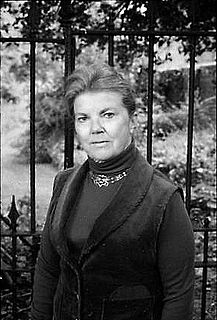A Quote by Clarissa Pinkola Estes
Related Quotes
It is time for the scientific community to stop giving alternative medicine a free ride There cannot be two kinds of medicine — conventional and alternative. There is only medicine that has been adequately tested and medicine that has not, medicine that works and medicine that may or may not work. Once a treatment has been tested rigorously, it no longer matters whether it was considered alternative at the outset. If it is found to be reasonably safe and effective, it will be accepted.
The scope of herbal medicine ranges from mild-acting plant medicines such as chamomile and peppermint, to very potent ones such as foxglove (from which the drug digitalis is derived). In between these two poles lies a wide spectrum of plant medicine with significant medical applications. One need only go to the United States Pharacopoeia to see the central role that plant medicine has played in American medicine.
Stories ought not to be just little bits of fantasy that are used to wile away an idle hour; from the beginning of the human race stories have been used - by priests, by bards, by medicine men - as magic instruments of healing, of teaching, as a means of helping people come to terms with the fact that they continually have to face insoluble problems and unbearable realities.
Until the 20th century, medicine was more like politics than physics. Its forecasts were often bogus and its record grim. In the 1920s, statisticians invaded medicine and devised randomised controlled trials. Doctors, hating the challenge to their prestige, resisted but lost. Evidence-based medicine became routine and saved millions of lives.
I think energy medicine is a field that is probably for me the most authentic level of medicine that there is, because it takes into account what I would call 'square one of creation'. Which is where energy meets the process of incarnating. So I think it is very much going to become the dominant practice of medicine in this next millennium. We have no other place to go but there.




































